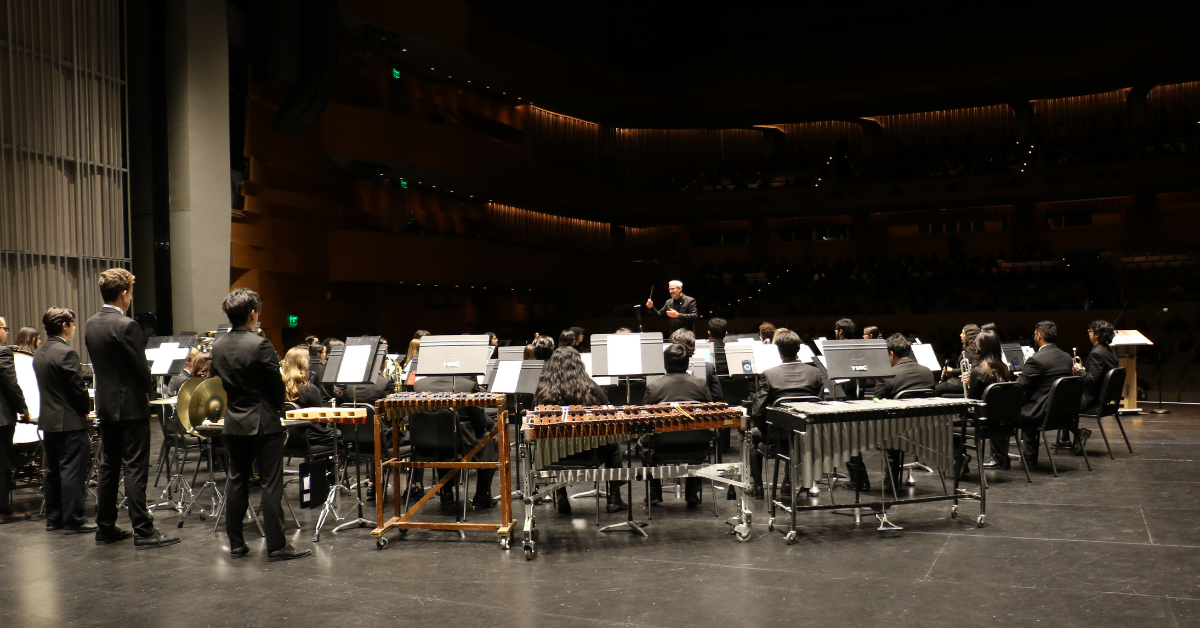BLOG
Art Is Not Extra: How Music Education Fuels Academic Success
In a world where standardized tests dominate the definition of achievement, the arts in education often get pushed aside. But here’s the truth: music education isn’t a luxury or a distraction from core subjects. It’s a critical component of a well-rounded education that enhances academic performance and levels the playing field for students from all backgrounds.
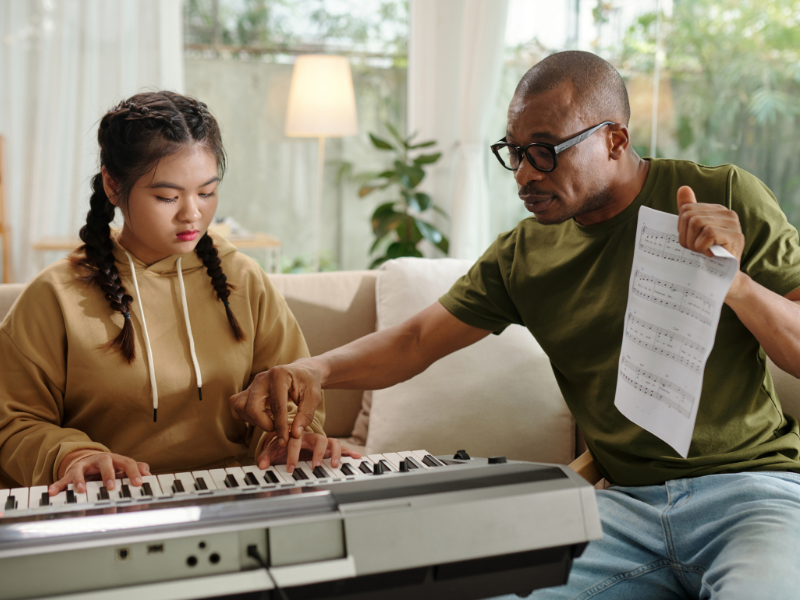
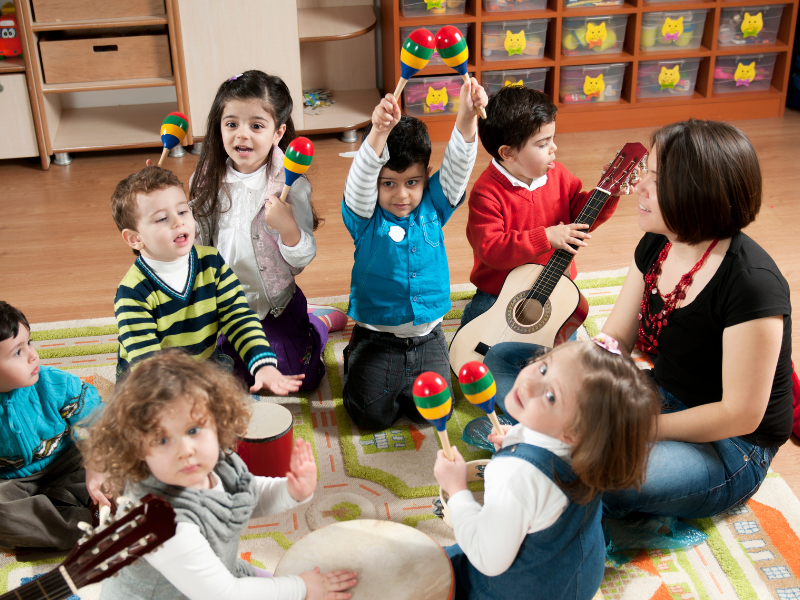
When schools cut the arts, they cut opportunities for students to thrive. It’s time to stop treating music like an extracurricular activity and start recognizing it as a cornerstone of student success. The importance of music education is supported by science, data, and decades of impactful stories, and it’s more relevant than ever.

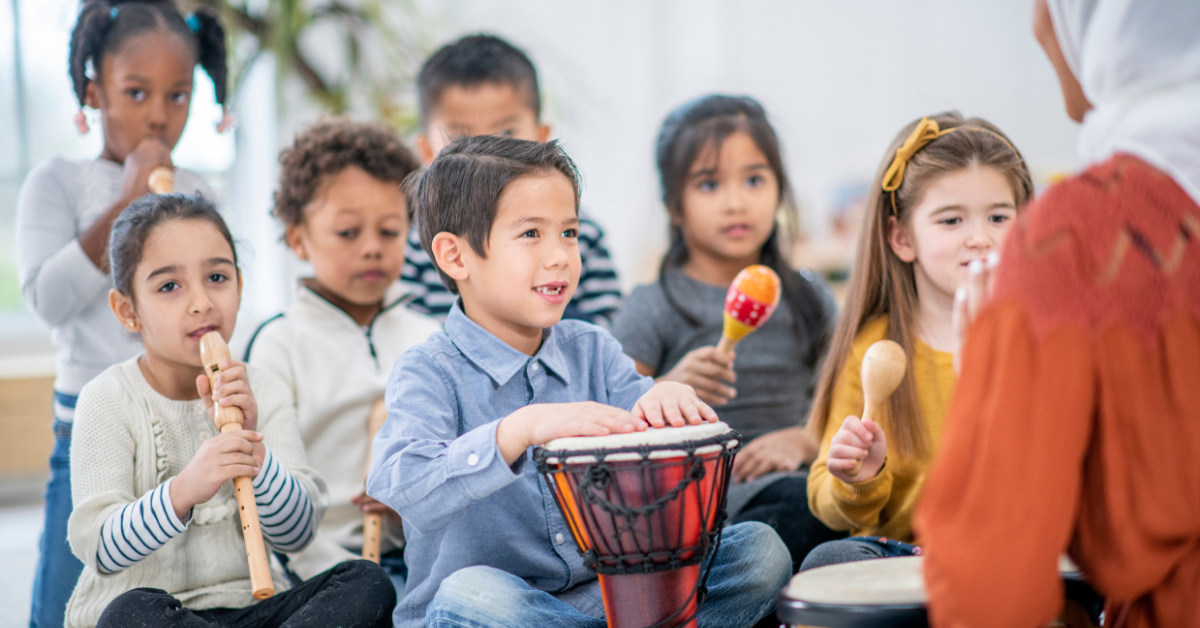
Music Enhances Brain Development
When a child learns to play a musical instrument, it’s not just their musical skills that grow; their brain physically changes. Neuroscientific studies show that music and brain development are closely linked. According to a national survey conducted by AARP, engaging with music stimulates almost every region of the brain, making it one of the most cognitively demanding activities a person can do.
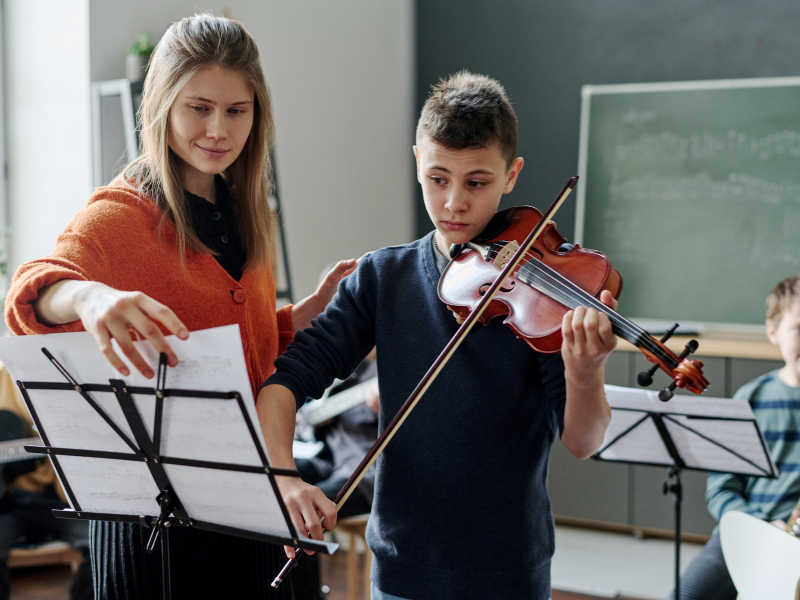
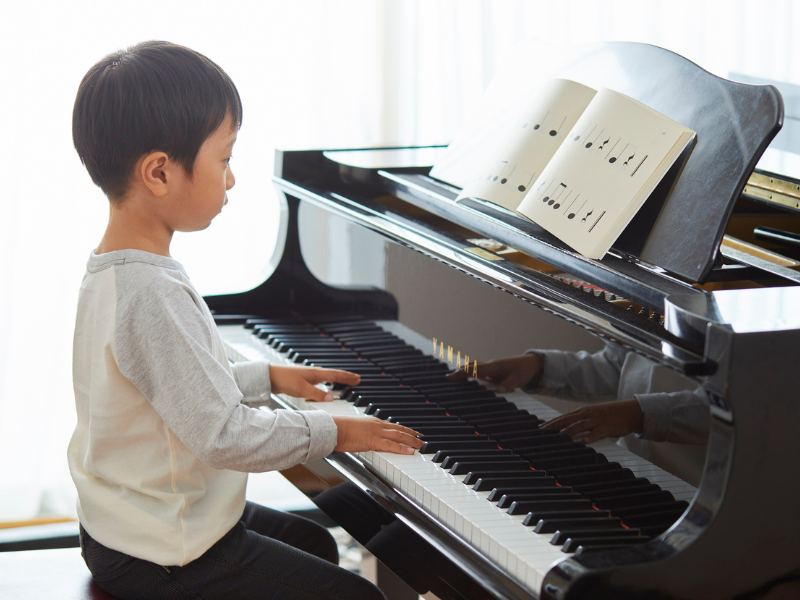
Playing an instrument requires the brain to process sound, read symbols, control fine motor movements, and respond in real time, often simultaneously. This complex integration boosts neuroplasticity — the brain’s ability to form and reorganize synaptic connections. For example, the corpus callosum, the bundle of nerves that connects the left and right hemispheres, is larger in musicians, enhancing communication between both sides of the brain.

The Guitar Center Music Foundation (GCMF) advocates for these evidence-based benefits by expanding access to instruments and instruction, especially in underfunded schools.
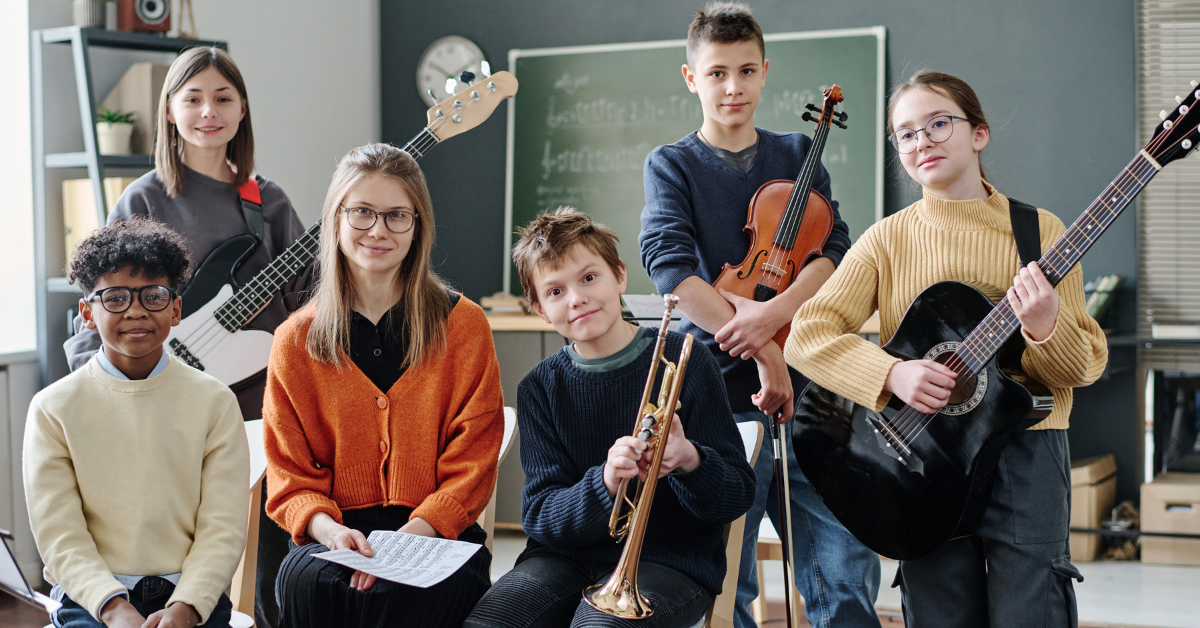
Music Strengthens Language and Reading Skills
Learning music sharpens the brain’s ability to process sound, a skill closely tied to language and reading development. When children practice rhythms, melodies, and pitch, they train their auditory system to detect subtle changes in sound, which is essential for distinguishing syllables and decoding words. Research shows that music education improves phonological awareness, a core predictor of reading success. It also enhances verbal memory, vocabulary acquisition, and reading fluency by reinforcing the brain’s ability to connect sounds with meaning.
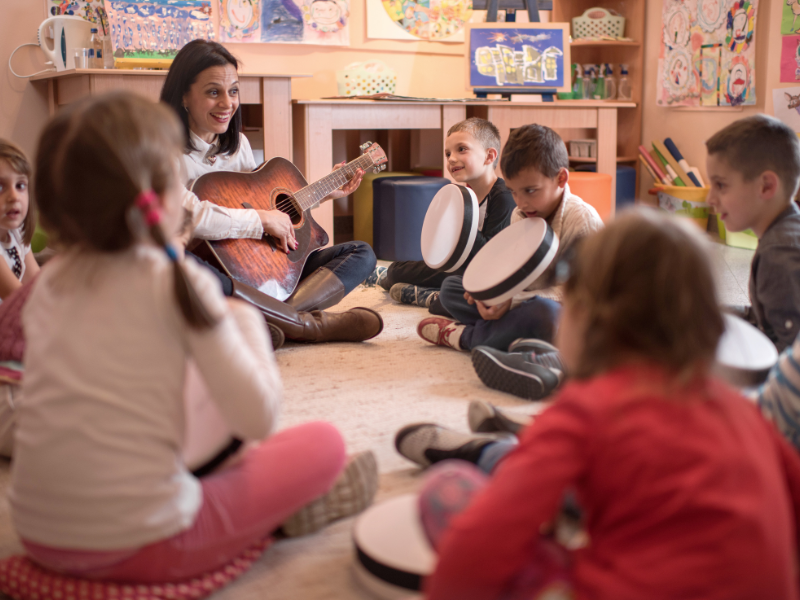
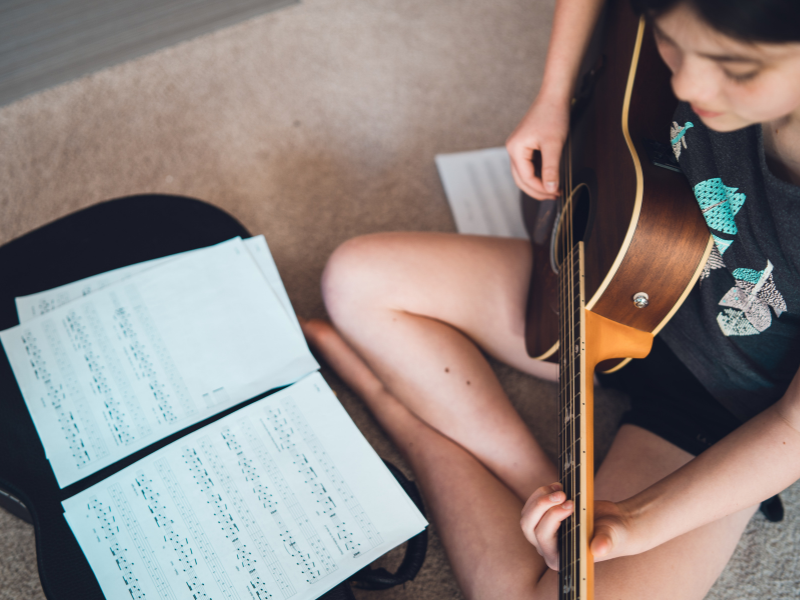
According to the National Institutes of Health, children who receive musical training in early childhood tend to develop stronger neural encoding of speech sounds, giving them an edge in language comprehension. In essence, music and reading rely on many of the same brain pathways, and strengthening one supports the other.

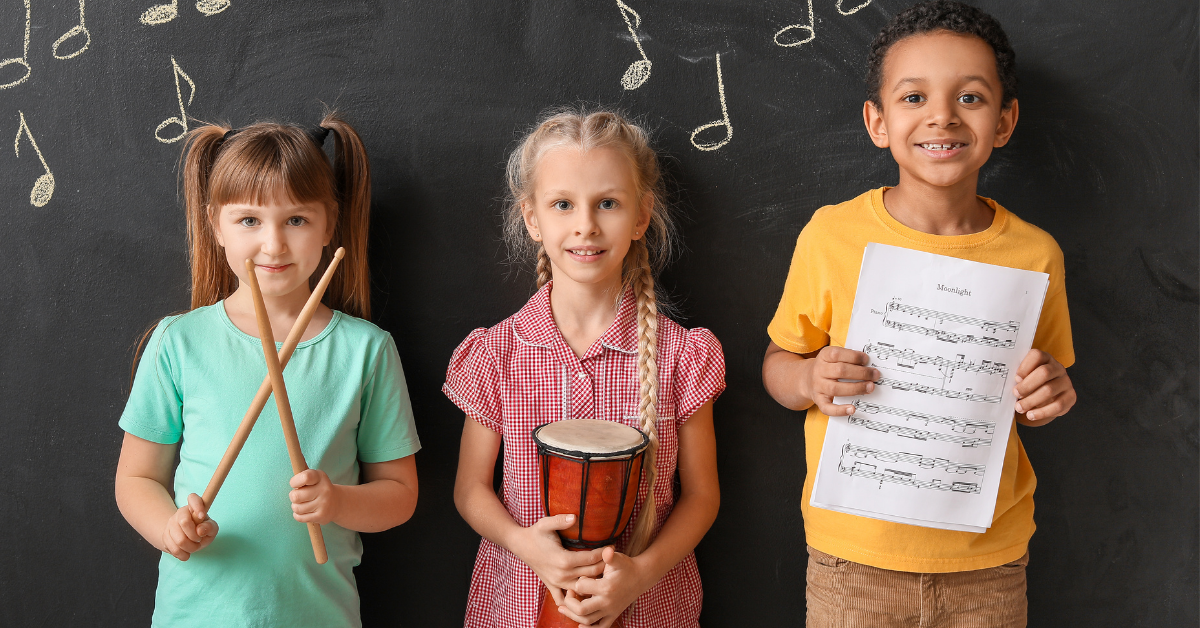
Music Boosts Math Performance
Music and math share deep cognitive roots. When students read rhythms, count beats, or understand musical structure, they’re engaging the same brain systems used in solving math problems. Key ways music supports math skills include:
- Pattern recognition: Identifying rhythmic and melodic patterns mirrors recognizing number patterns.
- Spatial-temporal reasoning: Visualizing note sequences enhances mental math and geometry skills.
- Fractional understanding: Reading rhythms reinforces knowledge of fractions (e.g., quarter notes and eighth notes).
Memory and sequencing: Musical practice strengthens working memory and ordered thinking, crucial for solving multistep math problems.
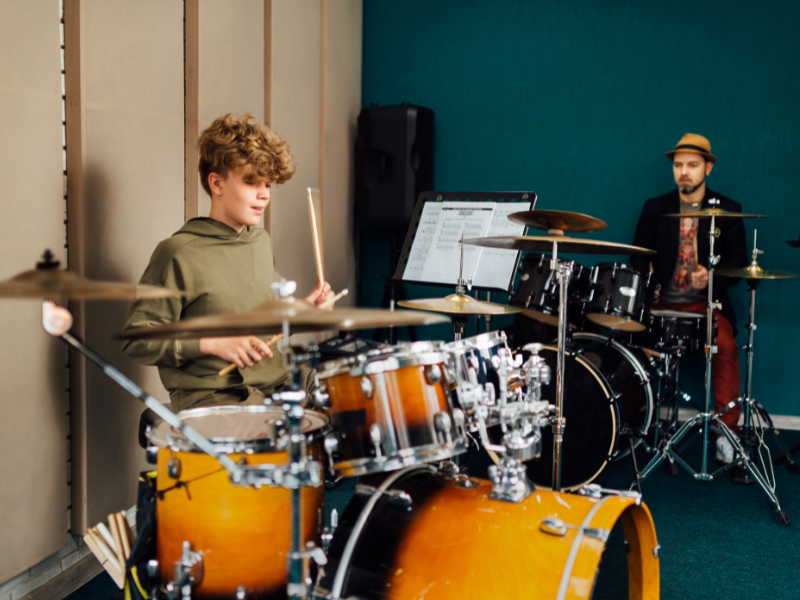
By training the brain to think in structured, time-based patterns, music helps lay a foundation for mathematical success.
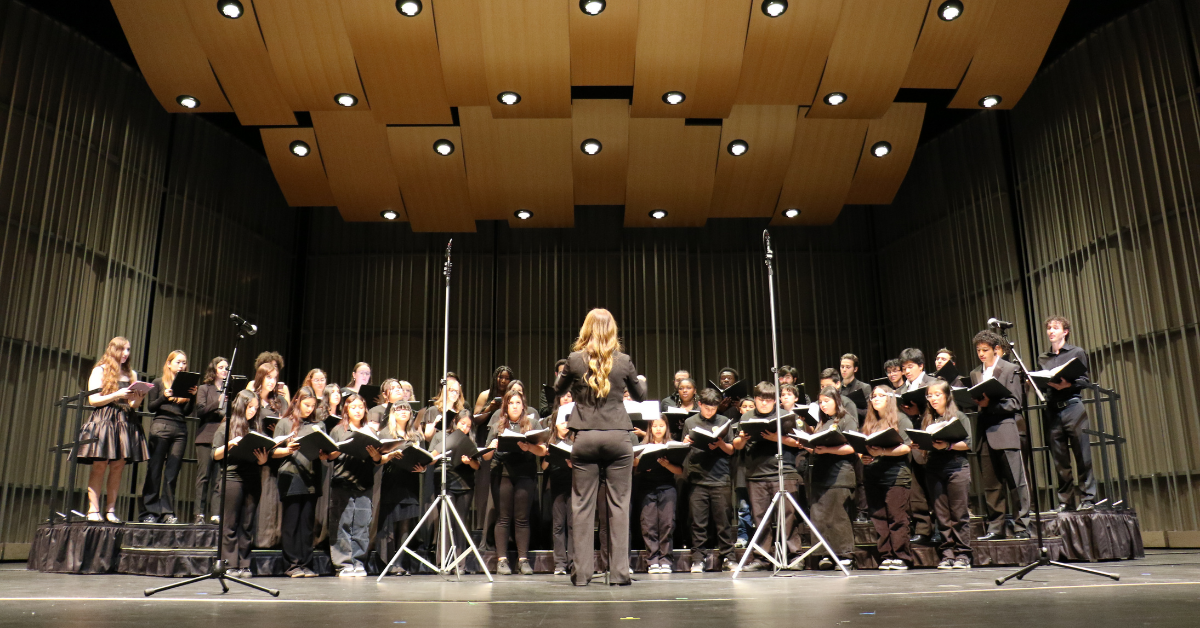
Music as a Bridge to Academic Equity
Music is a universal language, but access to it is not equally distributed. Under-resourced schools often lack funding for even the most basic music programs, perpetuating cycles of inequality. As a result, students in disadvantaged areas miss out on the learning benefits of music education, making existing opportunity gaps even wider.
Music education research shows that students from marginalized backgrounds benefit significantly from access to the arts. When schools prioritize music, they:
- Close achievement gaps for students from low-income families
- Foster a sense of belonging in diverse school communities
- Provide pathways to college scholarships and creative careers
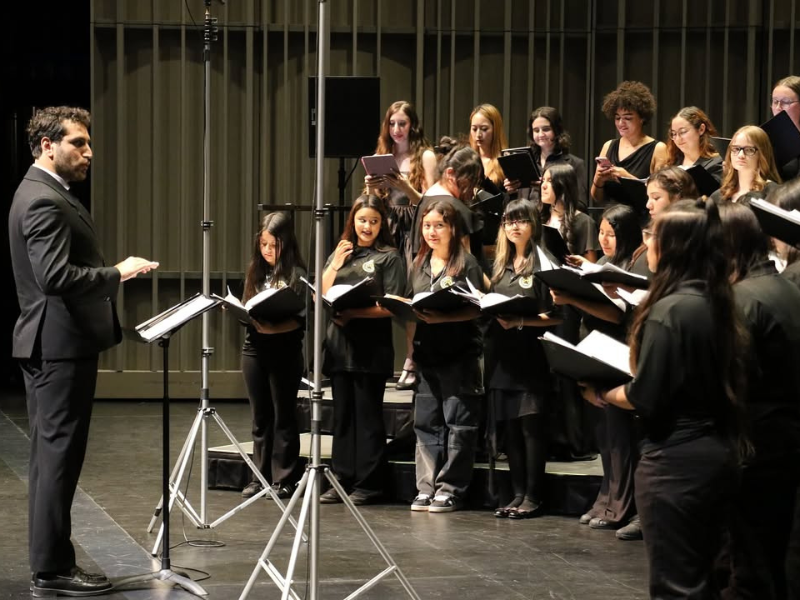
Equitable access to arts in education ensures that all students, not just the privileged few, get the chance to succeed. The GCMF works to remove these barriers by donating instruments and partnering with schools across the country.
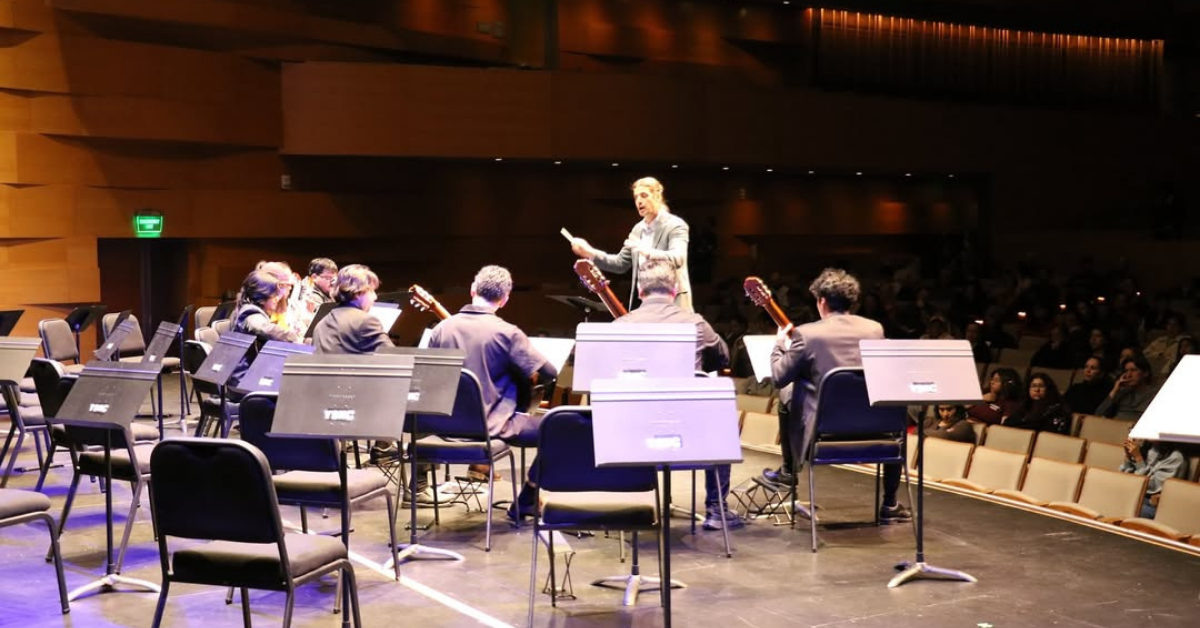
Art Is Essential, Not Optional
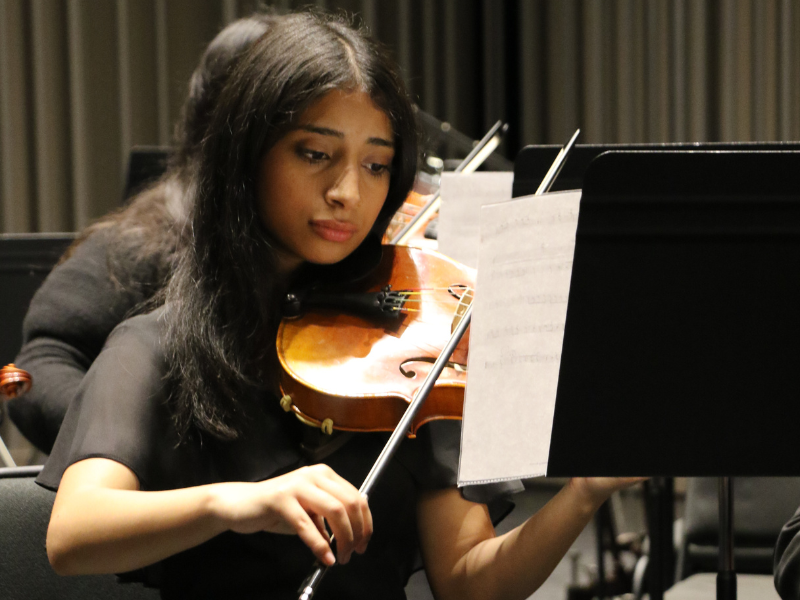
Eliminating music programs may seem cost-effective, but it ultimately undermines student success. The cost of instruments and instruction pales in comparison to the long-term academic benefits for students. We don’t ask whether reading or math are “extra,” so we shouldn’t ask that about music either.

Here’s what schools, families, and policymakers can do to protect and promote music education:
- Advocate: Push for local and national policies that fund arts programs.
- Support: Partner with organizations such as the GCMF to help schools access the tools they need.
Engage: Encourage students to explore music, whether through school programs or community initiatives.
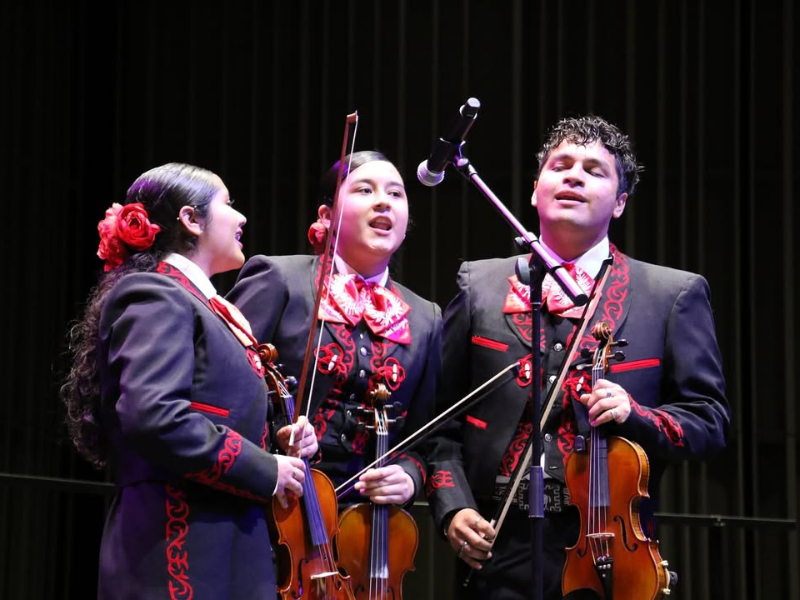
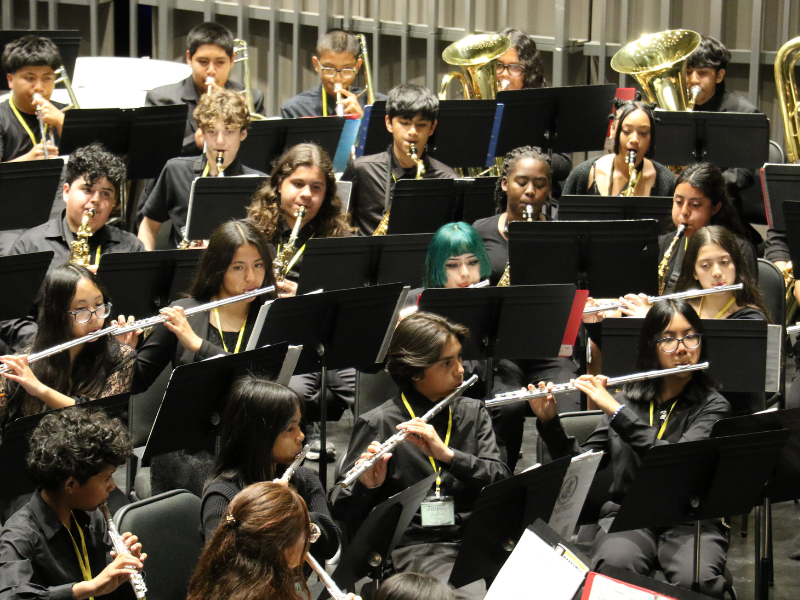
When we invest in music education, we invest in children. The importance of music education isn’t just about making better musicians; it’s about making better learners, leaders, and citizens. The next time a school board debates budget priorities, let’s remind them: art is not extra — it’s essential.

The GCMF is a 501(c)(3) nonprofit dedicated to ensuring everyone has the power to create and express themselves through music. Since 2005, we’ve supported hundreds of music education and therapy programs, reaching over 300,000 individuals, by providing instruments, grants, and vital resources to underserved schools and community initiatives. At the heart of our mission is a belief that music is essential to a healthy society and helps people unlock their full human potential.
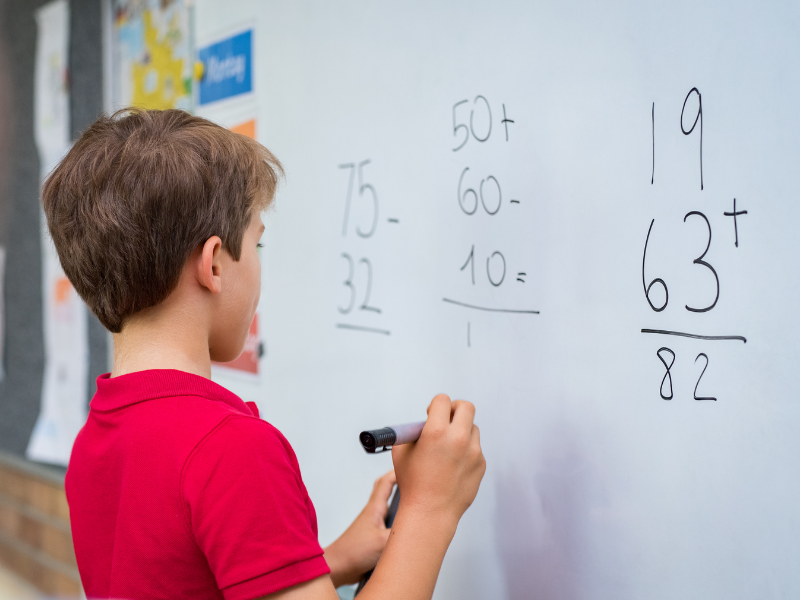
Support the GCMF today by:
- Donating directly to fuel instrument grants and education programs.
- Purchasing branded merchandise from our online store, where every sale helps fund music initiatives.
- Contacting us to contribute your used instrument. Instruments in good condition can be refurbished and placed with a deserving student or school.
No matter how you get involved, your support helps ensure music remains cherished, accessible, and life-changing.
